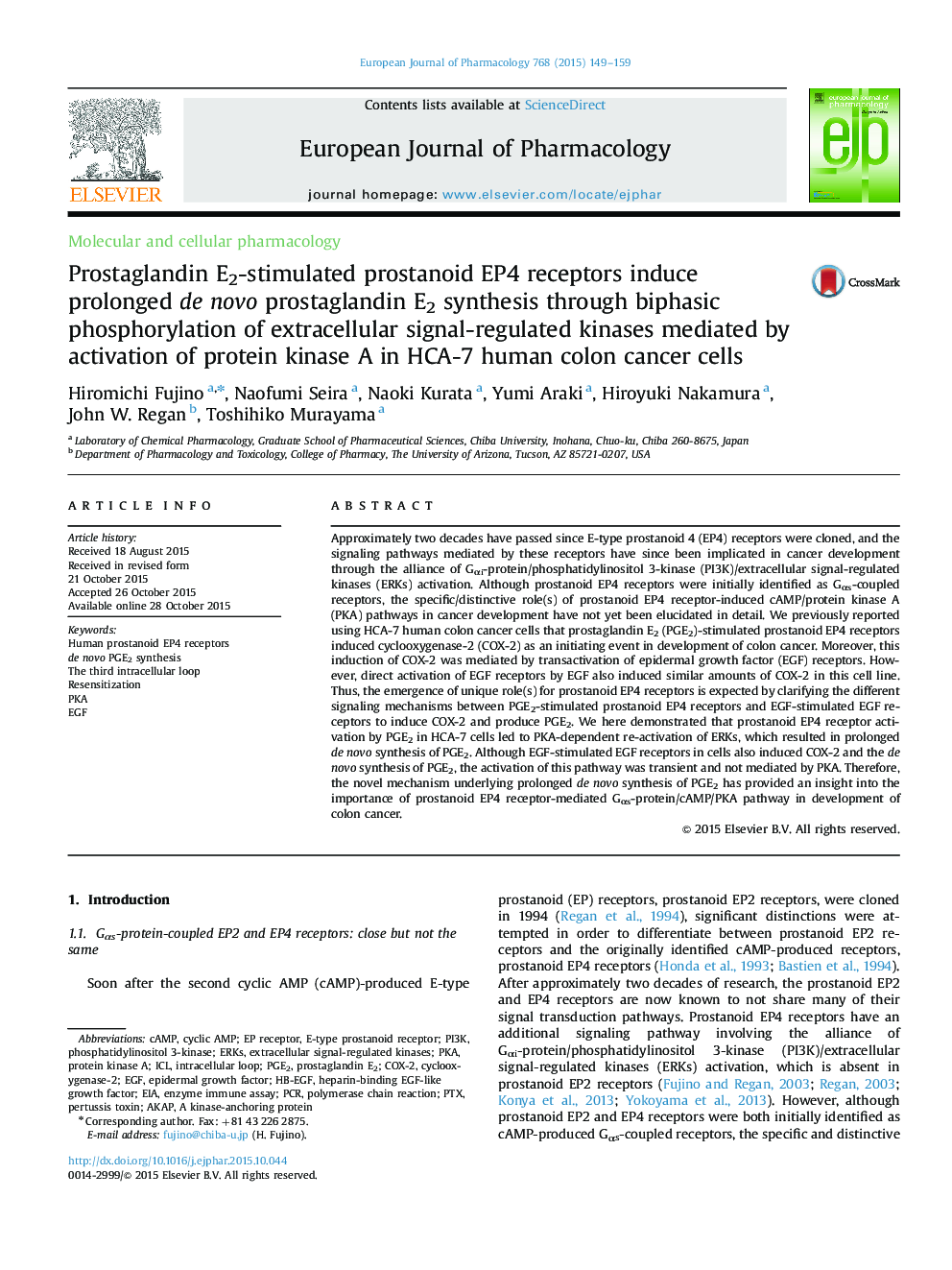| Article ID | Journal | Published Year | Pages | File Type |
|---|---|---|---|---|
| 2531242 | European Journal of Pharmacology | 2015 | 11 Pages |
Approximately two decades have passed since E-type prostanoid 4 (EP4) receptors were cloned, and the signaling pathways mediated by these receptors have since been implicated in cancer development through the alliance of Gαi-protein/phosphatidylinositol 3-kinase (PI3K)/extracellular signal-regulated kinases (ERKs) activation. Although prostanoid EP4 receptors were initially identified as Gαs-coupled receptors, the specific/distinctive role(s) of prostanoid EP4 receptor-induced cAMP/protein kinase A (PKA) pathways in cancer development have not yet been elucidated in detail. We previously reported using HCA-7 human colon cancer cells that prostaglandin E2 (PGE2)-stimulated prostanoid EP4 receptors induced cyclooxygenase-2 (COX-2) as an initiating event in development of colon cancer. Moreover, this induction of COX-2 was mediated by transactivation of epidermal growth factor (EGF) receptors. However, direct activation of EGF receptors by EGF also induced similar amounts of COX-2 in this cell line. Thus, the emergence of unique role(s) for prostanoid EP4 receptors is expected by clarifying the different signaling mechanisms between PGE2-stimulated prostanoid EP4 receptors and EGF-stimulated EGF receptors to induce COX-2 and produce PGE2. We here demonstrated that prostanoid EP4 receptor activation by PGE2 in HCA-7 cells led to PKA-dependent re-activation of ERKs, which resulted in prolonged de novo synthesis of PGE2. Although EGF-stimulated EGF receptors in cells also induced COX-2 and the de novo synthesis of PGE2, the activation of this pathway was transient and not mediated by PKA. Therefore, the novel mechanism underlying prolonged de novo synthesis of PGE2 has provided an insight into the importance of prostanoid EP4 receptor-mediated Gαs-protein/cAMP/PKA pathway in development of colon cancer.
